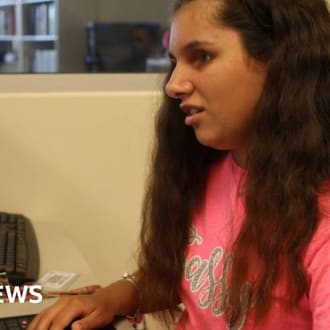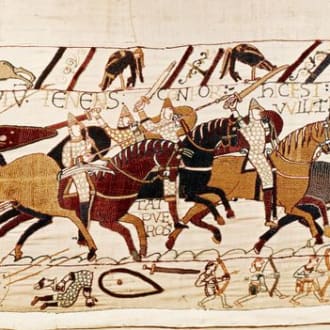The Best of BBC News (World)
20+ most popular BBC News (World) articles, as voted by our community.
Trending
These are currently making the rounds on Refind.
Why Julius Caesar's Year of Confusion was the longest year in history
To tame a hopelessly disorganised Roman calendar, Julius Caesar added months, took them away, and invented the leap year.
From London to New York: Can quitting cars be popular?
Cities around the world reveal surprising truths about getting the public on board with cutting car-use.
«Barcelona introduced free travel for three years for those who got rid of polluting cars,»
A Point of View: The strangely enduring power of kitsch
Modern art was born from a desire to destroy kitsch, but time and again it is drawn back to its lure, says Roger Scruton.
Reddit users say share plans 'beginning of the end'
Redditors are reacting with anger as the social media platform files to become publicly listed.
Winklevoss crypto firm Gemini to return $1.1bn to customers
Gemini was co-founded by twins Tyler and Cameron Winklevoss - known for their legal dispute with Facebook.
BBC News (World) on Cancer
Immune discovery 'may treat all cancer'
Research is at an early stage but scientists said it had huge potential for destroying cancers.
Million-year-old viruses help fight cancer, say scientists
A discovery gives experts new ideas for developing vaccines to treat or even prevent cancer.
«The study, published in the journal Nature, describes how this happens naturally in the body but the researchers want to enhance that effect by developing vaccines to teach the body how to hunt for endogenous retroviruses.»
BBC News (World) on Disability
Paralysed man moves in mind-reading exoskeleton
A man who had not walked for two years was able to move all his limbs thanks to new technology.
Why much of the internet is closed off to blind people
Retailers are struggling to make their products accessible, and customers are taking them to court.
BBC News (World) on Environment
Do single-use plastic bans work?
The problems caused by plastic waste are rapidly increasing around the globe, but it still serves a useful purpose in food packaging. Can plastic still be a green option?
«brands have transitioned away from refillables to single-use packaging faster in the global North than in the South; it simply made more economic sense,»
Spain's ingenious water maze
Invented by the region's Moorish rulers 1,200 years ago, Valencia's irrigation system is now a model for sustainable farming.
BBC News (World) on Food
Why there's no 'Dijon' in Dijon mustard
France is facing a widespread dearth of Dijon mustard, which news outlets wasted no time in attributing to the war in Ukraine. But the story is a whole lot spicier than that.
How hunger can warp our minds
Hunger is a powerful sensation, and it can overwhelm our brain's ability to carry out other tasks.
BBC News (World) on History
Do we need a better understanding of 'progress'?
A growing and influential intellectual movement aims to understand why human progress happens – and how to speed it up. Garrison Lovely investigates.
How ancient civilisations dealt with trauma
As the conflicts in Gaza and Ukraine continue, there’s deepening concern for the trauma that may come later. But war has been around for millennia. How did our ancestors cope?
BBC News (World) on India
Why south India outperforms the north
What are the consequences of southern India outperforming the rest of the country?
From Maruti to Amul: Five brands that shaped India after independence
The homegrown brands that have found their way into the homes and hearts of millions of Indians.
BBC News (World) on Nature
Is air pollution causing us to lose our sense of smell?
Our sense of smell is one of our richest and wide-ranging windows into the world around us, but a threat in the air we breathe may be eroding our olfactory powers.
Edward Burtynsky's photos show the scars of human-altered landscapes
Canadian photographer Edward Burtynsky discusses his startling and unexpectedly sublime photos – 'an extended lament for the loss of nature' – with Gaia Vince.
BBC News (World) on Procrastination
Why procrastination is about managing emotions, not time
Address the real reasons you procrastinate and you’re more likely to start achieving your goals.
«“make your focus as simple as ‘What’s the next action – a simple next step – I would take on this task if I were to get started on it now?’”.»
The four keys that could unlock procrastination
Procrastination gets the best of all of us, to the detriment of our work, happiness and health. But a new theory could provide us with the easiest way to kick the habit.
BBC News (World) on Travel
The Danish tradition we all need now
In Denmark, the Nordic concept of friluftsliv – or unwinding in the outdoors – includes troll hunts, shoreline biking and stargazing in Scandinavia's first International Dark Sky Park.
«the Nordic concept of friluftsliv – or unwinding in the outdoors»
Pakistan's lost city of 40,000 people
In the dusty plains of present-day Sindh in southern Pakistan lie the remains of one of the world's most impressive ancient cities that most people have never heard of.
Popular
These are some all-time favorites with Refind users.
How colours affect the way you think
Our world is awash with a rainbow of colours, but certain shades can have a surprising impact on our ability to concentrate, our mood and even our taste.
«And if you want a child to concentrate, you might consider painting a classroom in a vivid palette and so bolster their reading scores.»
How our brains cope with speaking more than one language
Speaking a second or even a third language can bring obvious advantages, but occasionally the words, grammar and even accents can get mixed up.
«our languages aren't just static throughout our lives but shifting, actively competing and interfering with each other.»
Why some people can't tell left from right
It can seem like an almost childish mistake, but a surprising number of adults confuse left from right and scientists are only just starting to understand why.
Can you delay ageing by refusing to act your age?
When old age starts depend on where you live in the world. But it may also partly depend on how you view ageing. Can you delay it with a positive attitude?
A mysterious cult that predates Stonehenge
Spread over a vast, remote landscape in north-western Saudi Arabia are millennia-old archaeological remains that could change our understanding of prehistory.
What is Refind?
Every day Refind picks the most relevant links from around the web for you. is one of more than 10k sources we monitor.
How does Refind curate?
It’s a mix of human and algorithmic curation, following a number of steps:
- We monitor 10k+ sources and 1k+ thought leaders on hundreds of topics—publications, blogs, news sites, newsletters, Substack, Medium, Twitter, etc.
- In addition, our users save links from around the web using our Save buttons and our extensions.
- Our algorithm processes 100k+ new links every day and uses external signals to find the most relevant ones, focusing on timeless pieces.
- Our community of active users gets the most relevant links every day, tailored to their interests. They provide feedback via implicit and explicit signals: open, read, listen, share, mark as read, read later, «More/less like this», etc.
- Our algorithm uses these internal signals to refine the selection.
- In addition, we have expert curators who manually curate niche topics.
The result: lists of the best and most useful articles on hundreds of topics.
How does Refind detect «timeless» pieces?
We focus on pieces with long shelf-lives—not news. We determine «timelessness» via a number of metrics, for example, the consumption pattern of links over time.
How many sources does Refind monitor?
We monitor 10k+ content sources on hundreds of topics—publications, blogs, news sites, newsletters, Substack, Medium, Twitter, etc.
Can I submit a link?
Indirectly, by using Refind and saving links from outside (e.g., via our extensions).
How can I report a problem?
When you’re logged-in, you can flag any link via the «More» (...) menu. You can also report problems via email to hello@refind.com
Who uses Refind?
450k+ smart people start their day with Refind. To learn something new. To get inspired. To move forward. Our apps have a 4.9/5 rating.
Is Refind free?
Yes, it’s free!
How can I sign up?
Head over to our homepage and sign up by email or with your Twitter or Google account.



























